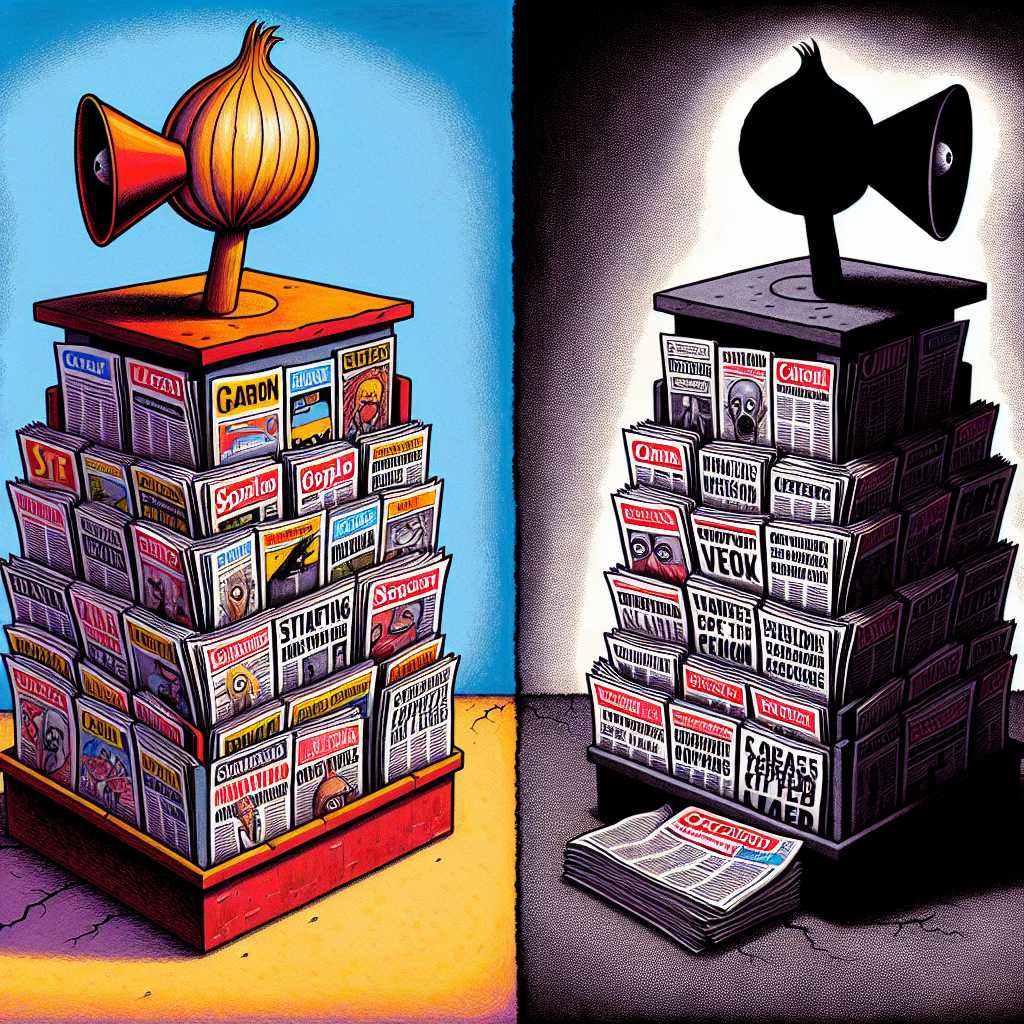## Exploring Satire and Conspiracies: The Divergent Worlds of The Onion and Infowars
In today’s ferociously fast media environment, where the lines between satire, fact, and conspiracy often blur, two platforms stand out starkly by their content and approach—The Onion and Infowars. One is known for its biting satire and parody, while the other has garnered attention for espousing conspiracy theories. This article takes a closer look at the characteristics, influences, controversies, and place in modern media of both entities.
Origins and Purpose of The Onion
The Onion began as a satirical newspaper in 1988 in Madison, Wisconsin, created by University of Wisconsin students Tim Keck and Christopher Johnson. Aiming to mock not only the news itself but also the way it was reported, The Onion quickly developed a reputation for piercing parody, presenting outlandish stories with a straight face. Over time, it has evolved into a purely digital platform, consistently using humor and irony to highlight absurdities in contemporary culture and politics.
Infowars: From Margins to Mainstream
Infowars is a media platform founded by radio show host and conspiracy theorist Alex Jones in the late 1990s. Designed as a hub for Jones’ radiocast and later evolving into a significant web presence, Infowars gained notoriety for promoting various conspiracy theories, including claims about globalist conspiracies, government surveillance overreach, and controversial theories regarding tragic events. Its impact has surged with the rise of alternative media.
Stylistic Devices and Impact on Audience
Both entities heavily employ emotive language; however, The Onion’s intention is to provoke laughter with its evident absurdity while Infowars employs provocative language to engage audiences on serious notes. The Onion writers excel at leveraging wit and creative scenarios that resonate with readers seeking humor or commentary on societal issues. Infowars focuses on stirring skepticism and doubt about mainstream narratives among its audience.
Controversies and Challenges
Each platform experienced different types of controversies. The Onion’s humorous fake news angle sometimes leads to real confusion when stories are taken at face value or shared out of context. On the other hand, Infowars has faced legal actions and severe platform restrictions due to what critics label as harmful misinformation and incitement—a much more grave flavor of controversy compared to that faced by satirical platforms.
The Role in Modern Media Landscape
The presence of The Onion questions the potency of straightforward satirical commentary in an era where the bizarre often becomes reality. In contrast, Infowars tests the boundaries of free speech and information dissemination against concerns over false news and its potential consequences. Each represents divergent paths that reflect broader cultural divisions on media consumption and trust.
Implications on Society and Journalism
Both platforms offer different insights into society’s engagement with media. The Onion’s readers often come for comic relief or satire that provides a critical lens on societal events. Infowars devotees might seek confirmation for distrust towards established institutions. Meanwhile, journalists watch both: one for how it artfully distills cultural moments into satire, the other for understanding how fringe narratives can enter mainstream conversation.
